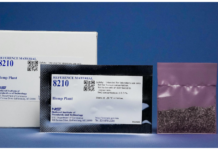Since the earliest days of the regulated cannabis industry, companies have been able to offer safe, consistent, and reliable consumer products through protective ozone decontamination technology. Ozone decontamination is a game-changing preventative solution within the industry. Recent claims regarding the potential risks of ozone in cannabis operations are not only unfounded but also perpetuate alarmist misinformation about the efficacy of these vital kill-step processes.
Ozone is a powerful sanitizer that has been in use by the food industry since 1957, when the United States Department of Agriculture (USDA) approved using the substance in its gaseous form for the storage of meat. In 1995, ozone was Generally Recognized As Safe (GRAS) in the U.S. for the disinfection of bottled water. The U.S. Food and Drug Administration (FDA) granted GRAS approval in 2001 for ozone’s use in direct contact with food products, including all meat and poultry products, and the USDA followed by granting GRAS approval for ozone in 2002. Ozone treatment also is recommended by the U.S. Environmental Protection Agency as the most effective wastewater treatment and is used to disinfect equipment in manufacturing environments and prevent disease in poultry drinking water.
Ozone, or O3, is a molecule composed of three oxygen atoms. It is highly unstable, often decomposing into the more common form of oxygen, O2. If kept stable, the molecule can be used as a potent oxidizing agent. Over the years, research has confirmed the safety and efficacy of ozone treatment. A 2021 study conducted at Institut Polytechnique UniLaSalle at the Université d’Artois in France examined ozone treatments for preserving fresh vegetable quality and found, when properly applied, “ozone avoids and controls biological growth on vegetables, keeping their attractive appearance and sensorial qualities, assuring nutritional characteristics’ retention, and maintaining and increasing the shelf-life.” A 1999 review by researchers at Ohio State University found “ozone, in the gaseous or aqueous phases, is effective against the majority of microorganisms tested by numerous research groups,” and “relatively low concentrations of ozone and short contact time are sufficient to inactivate bacteria, molds, yeasts, parasites, and viruses.” Cultivation businesses have turned to ozone decontamination treatments given the molecule’s long history of use and efficacy as a decontaminant for water treatment and agricultural disinfection.
The risk of contamination is present at every stage of the cultivation process, so quality control is essential. Many traditional decontamination methods do not work on cannabis. You can’t heat the biomass and you can’t get it wet, as doing either would dramatically alter the product matrix and the cannabinoid and terpene profiles. Ozone’s proven effectiveness in destroying microbes, viruses, and bacteria makes it an attractive treatment option for cultivators to eliminate or reduce contaminants.
Despite the molecule’s instability, ozone treatment offers many advantages. Ozone processes are less expensive than other decontamination processes, they use less energy, and they are safe for manufacturers to use. One of ozone’s most positive characteristics is its natural ability to degrade into oxygen. For this reason, ozone technology—rather than heat pasteurization or other chemical treatments—has become popular in agriculture as well as various food and plant applications. Because it rapidly breaks back down into oxygen, ozone leaves no residue. Ozone applications are recognized as safe and effective when applied properly, and they are compliant with standards developed by the FDA, USDA, Occupational Safety and Health Administration (OSHA), National Sanitation Foundation/American National Standards Institute (NSF/ANSI) Standard 50, and UL lab standards.
Ozone decontamination technology is trusted by hundreds of world-class cultivators across twenty-six states and the international market to safely clean cannabis flower, hemp, and trim without compromising quality, flavor, or effect.
A variety of vetted and scientifically supported decontamination solutions bolster consumer and regulatory confidence in this rapidly maturing industry. Cultivators should do their research to determine what decontamination process is best-suited to their needs as well as their number-one priority: the health and safety of consumers.











[…] The unique engineering of our machines ensures the controlled, contained, and targeted treatment of your flower, in order to proactively and directly combat harmful pathogens living on the surface of the plant. No guessing, no safety risks, no gaps – just clean, healthy cannabis. […]
[…] and subsequent international exporting opportunities. Conversely, the EU can take note of successful indoor cultivation practices in the U.S. as more countries begin to grow plants […]
[…] Ozone gas (O3) is a highly reactive oxidizing molecule that destroys microbes’ cellular walls, thereby inactivating or “killing” pathogens. Gas treatment is inexpensive but time-consuming. Additionally, O3 may not completely penetrate the bud and in some cases also may cause damage to terpenes. […]